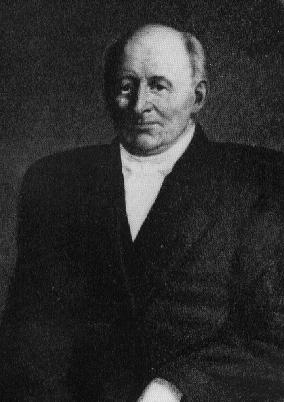Heinrich Schwabe facts for kids
Quick facts for kids
Samuel Heinrich Schwabe
|
|
|---|---|
 |
|
| Born | 25 October 1789 |
| Died | 11 April 1875 (aged 85) |
| Nationality | German |
| Known for | sunspots |
| Awards | Gold Medal of the Royal Astronomical Society (1857) |
| Scientific career | |
| Fields | astronomy |
Samuel Heinrich Schwabe (born October 25, 1789 – died April 11, 1875) was a German astronomer. He is famous for his important work on sunspots. Sunspots are dark, cooler areas on the Sun's surface.
Contents
Who Was Samuel Schwabe?
Samuel Heinrich Schwabe was born in Dessau, Germany. He first worked as an apothecary, which is like a pharmacist. But he became very interested in the stars and planets. In 1826, he started observing the Sun.
From Pharmacy to Stargazing
Schwabe decided to become an astronomer. He began his detailed observations of the Sun in 1826. He spent many years looking at the Sun. He wanted to find something new in our solar system.
The Search for a Hidden Planet
Schwabe was looking for a new planet. This planet was thought to be inside the orbit of Mercury. It was called Vulcan. This planet would be very hard to see. It would be too close to the Sun.
Schwabe thought he could find it. He hoped to see it pass in front of the Sun. This event is called a transit. He watched the Sun every clear day for 17 years. He started in 1826 and continued until 1843.
A Big Discovery: Sunspot Cycles!
Schwabe did not find the planet Vulcan. But he noticed something else amazing. He saw a regular change in the number of sunspots. Sometimes there were many, and sometimes very few. This pattern repeated over time.
He published his findings in 1843. His article was called "Solar Observations during 1843." He suggested that the number of sunspots changed every ten years. This is known as the sunspot cycle.
At first, few people paid attention. But Rudolf Wolf, an astronomer in Bern, was impressed. He started his own sunspot observations. Later, in 1850, Alexander von Humboldt used Schwabe's work. He included it in his famous book, Kosmos.
His Lasting Impact
Today, the sunspot cycle is well known. It is a very important discovery in astronomy. Schwabe is given credit for this amazing finding. His careful, long-term observations changed how we understand the Sun.
Awards and Recognition
In 1857, Samuel Schwabe received a major award. He was given the Gold Medal of the Royal Astronomical Society. This award recognized his important contributions to astronomy.

